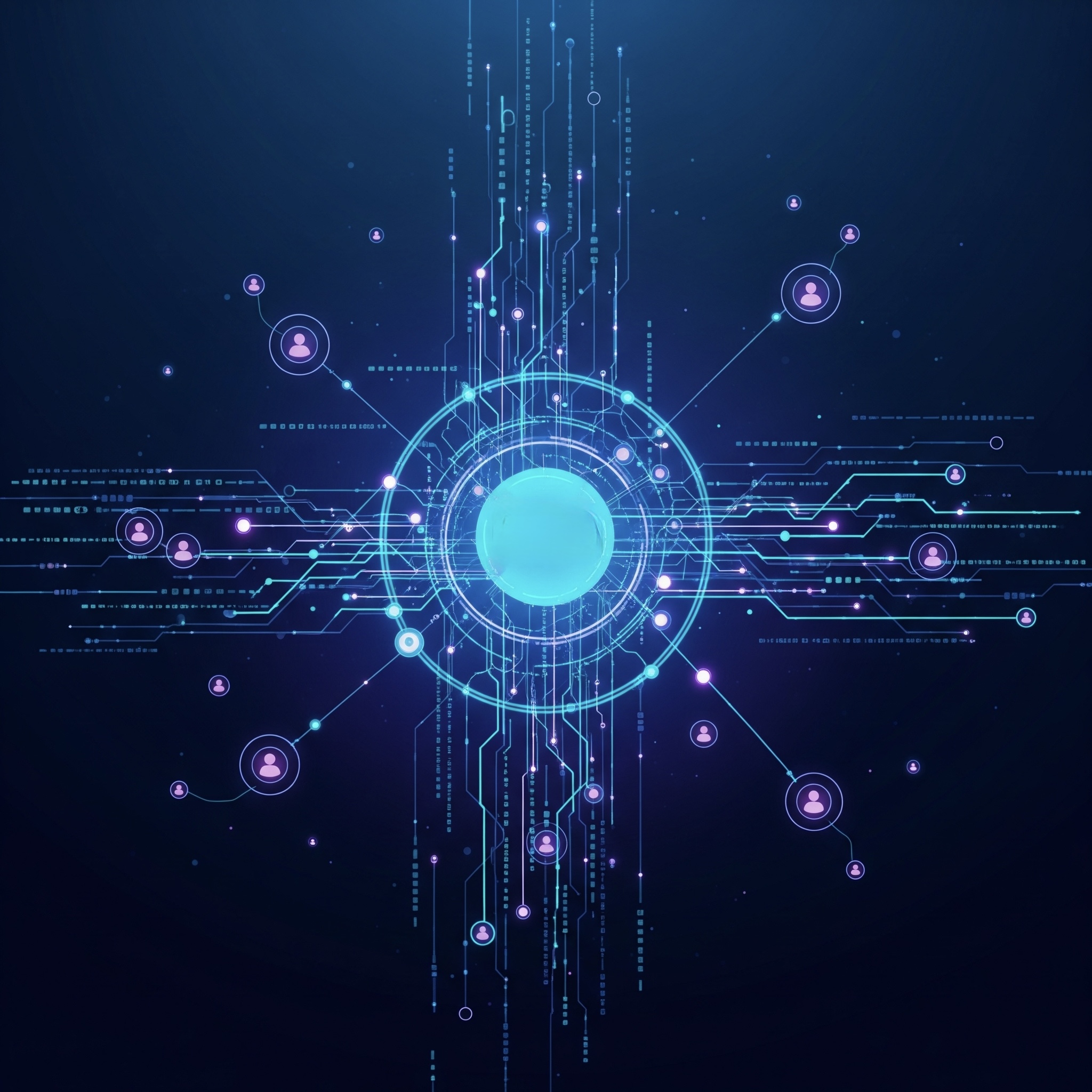Unpacking DAOs: How Does a Company Without a Boss Work?
Imagine a global organization that operates transparently, where decisions are made collectively by its members rather than by a single CEO or a centralized board of directors. This isn’t a futuristic fantasy; it’s the reality of Decentralized Autonomous Organizations (DAOs). These digitally native entities run on blockchain technology, governed by code and community consensus. DAOs leverage smart contracts to automate operations and execute decisions, creating a new paradigm for corporate governance and collaboration. As this innovative structure gains traction in Web3 and beyond, it challenges our traditional understanding of what a company is and how it should function. Understanding the mechanics, legal standing, and potential liabilities associated with DAOs is crucial for anyone looking to participate in or build the next generation of digital organizations.
The Structure and Governance of DAOs
What is a DAO? The Core Components
At its heart, a Decentralized Autonomous Organization is an entity whose rules are encoded as a computer program, which is transparent, controlled by the organization members, and not influenced by a central government. The foundational pillars of most DAOs are smart contracts, a community treasury, and governance tokens. Smart contracts, deployed on a blockchain like Ethereum, act as the organization’s constitution and operational rulebook, automatically executing actions when predefined conditions are met. The community treasury, also controlled by smart contracts, holds the organization’s funds and assets, which can only be spent with the approval of the members. Finally, governance tokens are distributed to members, representing their voting power and stake in the organization. The more tokens a member holds, the greater their influence over proposals, making these tokens the key to participating in the decision-making process of these innovative DAOs.
Governance Models in Action: Voting and Proposals
Governance within a DAO is a democratic and transparent process driven entirely by its members. Any member holding governance tokens can typically create a proposal for the organization to consider. This could be anything from allocating treasury funds to a new project, changing a governance rule, or hiring a new contributor. Once a proposal is submitted, it enters a voting period where other token holders can cast their votes. The weight of each vote is usually proportional to the number of tokens held. If the proposal reaches a predetermined quorum (minimum participation) and passes a majority threshold, the decision is automatically implemented by the DAO’s smart contracts without needing any human intermediary to sign off or execute the action. This removes bureaucracy and potential for manipulation, ensuring that the will of the community is carried out exactly as voted upon.
Navigating the Legal Labyrinth of DAOs
The Unsettled Legal Status and Entity Recognition
One of the most significant challenges facing Decentralized Autonomous Organizations is their ambiguous legal status. Most legal systems around the world were designed long before the advent of blockchain technology and do not have a clear framework for recognizing DAOs as legitimate corporate entities. By default, a DAO is often treated as a “general partnership” in many jurisdictions. This lack of formal recognition creates significant uncertainty, making it difficult for DAOs to interact with the traditional world—for instance, to open a bank account, sign contracts with traditional companies, or own real-world assets. In response, some forward-thinking jurisdictions, such as Wyoming in the United States, have introduced specific legislation like the “DAO LLC,” providing a legal wrapper that grants the organization limited liability and a recognized corporate form, bridging the gap between the decentralized world and traditional law.
Liability Issues: Who is Responsible When Things Go Wrong?
The question of liability is a critical concern for anyone participating in a DAO. Without a formal legal structure recognized by law, the members of DAOs could be held personally and unlimitedly liable for the organization’s debts and legal wrongdoings. If a DAO is treated as a general partnership, every member could be sued for the total liabilities of the entire organization, putting their personal assets at significant risk. This is a major deterrent for broader participation and investment. To mitigate this risk, many DAOs are now choosing to incorporate as a legal entity, such as a Wyoming DAO LLC or a foundation in a crypto-friendly jurisdiction like Switzerland or the Cayman Islands. This legal “wrapper” shields individual members from personal liability, confining any potential legal or financial claims to the assets held within the DAO’s treasury, which is a crucial step for the long-term sustainability and safety of DAOs.
The Future of DAOs and Corporate Structures
The Potential to Revolutionize Traditional Business
The DAO model holds immense potential to disrupt and improve upon traditional corporate structures. Its inherent transparency, with all transactions and governance decisions recorded on an immutable public ledger, fosters a level of trust that is difficult to achieve in conventional companies. Operations can be incredibly efficient, as automated smart contracts replace slow and costly manual administrative processes. Furthermore, DAOs break down geographical barriers, allowing for the creation of truly global organizations where talent and capital can be sourced from anywhere in the world without the friction of traditional international business setup. This opens up new possibilities for everything from decentralized venture capital funds and collaborative creative studios to non-profit organizations where donors can have a direct say in how funds are utilized, promising a more equitable and efficient future for collective enterprise.
Overcoming Hurdles for Mainstream Adoption
Despite their revolutionary potential, DAOs must overcome several significant hurdles before they can achieve mainstream adoption. Regulatory uncertainty remains a primary obstacle, as governments worldwide are still grappling with how to classify and regulate these novel entities. Security is another major concern; a bug or vulnerability in a DAO’s smart contract code can be exploited, potentially leading to the catastrophic loss of all funds in the treasury with no recourse. Additionally, the risk of plutocracy, where governance is dominated by a small number of “whale” token holders, can undermine the decentralized and democratic ethos of the organization. For DAOs to truly flourish, the ecosystem needs to develop more robust security auditing practices, user-friendly interfaces that abstract away technical complexity, and clearer legal frameworks that provide both protection and legitimacy.
Conclusion: DAOs and the Future of Governance
Decentralized Autonomous Organizations represent a fundamental shift in how we think about corporate structure, governance, and collective action. By replacing hierarchical management with code and community consensus, DAOs offer a blueprint for more transparent, efficient, and globally accessible organizations. They empower individuals by giving them a direct stake and a voice in the entities they participate in, cutting through the bureaucracy that often stifles innovation in traditional companies. However, the path forward is not without its challenges. The critical issues of legal ambiguity and member liability loom large, posing significant risks that can deter participation and hinder growth. For DAAs to reach their full potential, they must navigate this complex legal landscape and establish structures that protect their members.
The foundation of any secure and effective DAO is its smart contracts. These self-executing contracts are the bedrock of the entire organization, defining its rules, managing its treasury, and executing the will of its community. A single flaw in the code can have devastating consequences. This is where professional expertise becomes invaluable. WHYFIRM specializes in the development and auditing of high-security Smart Contracts. Our team of experts ensures that the code governing your organization is robust, reliable, and free from vulnerabilities, providing the solid legal and technical foundation necessary to build a successful and resilient decentralized organization. Let WHYFIRM help you build the future of governance with confidence.

